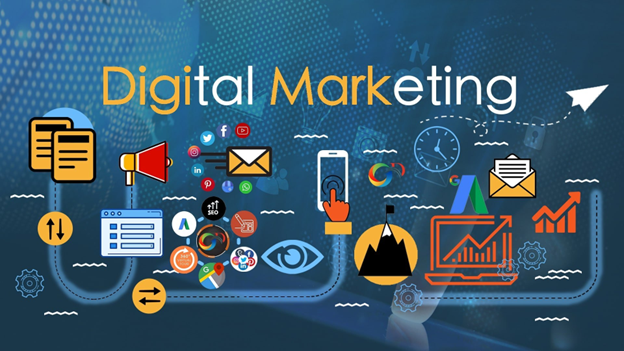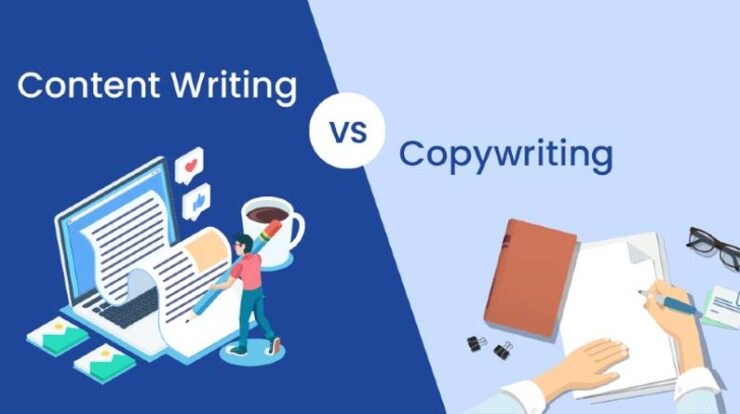
A digital marketing strategy is a plan for using digital channels to reach marketing goals. It includes decisions about which channels to use, what content to publish, and how to measure success. A digital marketing strategy should align with a company’s overall business goals and be flexible enough to adapt to changing trends and technologies.
There are many different elements that can be included in a digital marketing strategy. Some common ones include:
- Search engine optimization (SEO): Optimizing a website to rank well in search engine results pages (SERPs).
- Content marketing: Creating and distributing valuable, relevant, and consistent content to attract and retain a clearly defined audience.
- Social media marketing: Using social media platforms to connect with customers and promote a company’s products or services.
- Email marketing: Sending targeted emails to a company’s email list to promote products or services.
- Pay-per-click (PPC) advertising: Running advertisements on search engines or other websites that are charged per click.
- Affiliate marketing: Earning a commission by promoting other companies’ products.
- Influencer marketing: Partnering with social media influencers to promote products or services.
The specific tactics used will depend on the goals of the business and the target audience. A good digital marketing strategy should be data-driven and use analytics to measure the success of different tactics.
- Search engine optimization (SEO)
Search engine optimization (SEO) is the process of optimizing a website in order to rank well in search engine results pages (SERPs) for specific keywords or phrases. The goal of SEO is to attract organic (non-paid) traffic to a website by improving its visibility in search engine results.
There are many different factors that can affect a website’s ranking in search results. Some of the most important ones include:
- On-page factors: These are elements of a website that can be optimized, such as the content, title tags, and Meta descriptions.
- Off-page factors: These are factors that are external to the website, such as the number and quality of backlinks from other websites.
- Technical factors: These are factors related to the technical aspect of a website, such as its loading speed and mobile-friendliness.
To optimize a website for search engines, it’s important to conduct keyword research to identify the terms that people are using to search for products or services related to the business. The website’s content should then be optimized using these keywords in a way that is natural and not spammy. Other on-page and technical factors should also be considered. Off-page factors can be influenced by building high-quality backlinks from other reputable websites.
SEO is a constantly evolving field, and it’s important for businesses to stay up to date on the latest best practices in order to effectively optimize their websites and improve their search engine rankings.
- Content marketing
Content marketing is a strategy that involves creating and distributing valuable, relevant, and consistent content with the goal of attracting and retaining a clearly defined audience. The content can be in a variety of forms, such as blog posts, articles, infographics, videos, podcasts, and more.
The main objective of content marketing is not to sell products or services directly, but rather to establish trust and credibility with the target audience. By providing useful and informative content, businesses can build relationships with their customers and eventually convince them to make a purchase.
Hiring professional ghostwriters to create content for a content marketing campaign can be an effective way to produce high-quality content in a timely manner.
There are several reasons why a business might choose to hire professional ghostwriters for content marketing:
- Lack of time: Creating high-quality content can be time-consuming, and businesses may not have the resources or capacity to produce all of the content they need in-house. Hiring professional ghostwriters can free up time for other tasks and allow the business to produce more content in less time.
- Lack of expertise: Businesses may not have staff with the necessary knowledge or expertise to write about certain topics. In these cases, hiring professional ghostwriters with subject matter expertise can ensure that the content produced is accurate and informative.
- Consistency: Hiring professional ghostwriters can help to ensure that content is produced consistently and on schedule. This can be especially important for businesses that are trying to establish a strong presence on social media or other platforms.
- Quality: Professional ghostwriters are trained to produce high-quality content that is well-written, informative, and engaging. This can help to improve the overall quality of the content produced by the business.
- Social media marketing
Social media marketing is the process of using social media platforms to connect with customers and promote a company’s products or services. It can be an effective way to reach a large audience and build brand awareness, as well as to drive traffic and sales.
There are many different social media platforms that businesses can use for marketing, including Facebook, Twitter, Instagram, LinkedIn, and more. Each platform has its own unique features and demographics, so it’s important for businesses to choose the right platforms for their target audience.
To be effective, a social media marketing campaign should be well-planned and aligned with the overall business goals. It’s also important to have a clear understanding of the target audience and to create content that resonates with them.
- Email marketing
Email marketing is a strategy that involves sending targeted emails to a company’s email list in order to promote products or services. It can be an effective way to reach customers and drive sales, as well as to stay top-of-mind with subscribers and build relationships with them.
To be effective, an email marketing campaign should be well-planned and aligned with the overall business goals. It’s also important to segment the email list and create targeted messages that are relevant to the specific interests of different groups of subscribers.
- Pay-per-click
Pay-per-click (PPC) advertising is a form of online advertising in which businesses pay a fee each time one of their ads is clicked. PPC ads are typically displayed on search engine results pages (SERPs) or on other websites that are part of a PPC advertising network.
PPC advertising can be an effective way to reach a targeted audience and drive traffic and sales. It’s important to carefully select keywords and create targeted ads in order to maximize the effectiveness of a PPC campaign. PPC advertising can also be highly measurable, which allows businesses to track the return on investment (ROI) of their campaigns and make data-driven decisions.
- Affiliate marketing
Affiliate marketing is a strategy in which a business rewards affiliates for each customer brought to the business through the affiliates’ marketing efforts. The affiliates can be individuals or organizations, and they typically promote the business’s products or services through their own websites or social media channels.
In affiliate marketing, affiliates are typically paid a commission for each sale made as a result of their marketing efforts. This can be a cost-effective way for businesses to reach new customers and drive sales, as they only pay for results.
To be effective, an affiliate marketing program should have clear goals and a well-defined target audience. It’s also important to have a system in place to track and measure the success of the program, and to provide affiliates with the tools and support they need to be successful.
- Influencer marketing
Influencer marketing is a strategy that involves partnering with social media influencers or other public figures in order to promote a business’s products or services. Influencers have a large following on social media and are typically trusted by their followers, which makes them a powerful tool for promoting products or services.
To be effective, influencer marketing should be authentic and align with the values and interests of the influencer’s followers. It’s also important to carefully select influencers who are a good fit for the business and its target audience.
Measuring the success of an influencer marketing campaign can be challenging, but it’s important to track metrics such as engagement, clicks, and conversions in order to understand the campaign’s impact and make informed decisions about future campaigns.
Conclusion
Digital marketing is a broad field that encompasses a variety of strategies and tactics for promoting products or services online. Some common strategies include search engine optimization (SEO), content marketing, social media marketing, email marketing, pay-per-click (PPC) advertising, affiliate marketing, and influencer marketing.
A digital marketing campaign should be well-planned and aligned with the overall business goals. It’s also important to have a clear understanding of the target audience and to use data and analytics to measure the success of the campaign and make informed decisions about future efforts.






